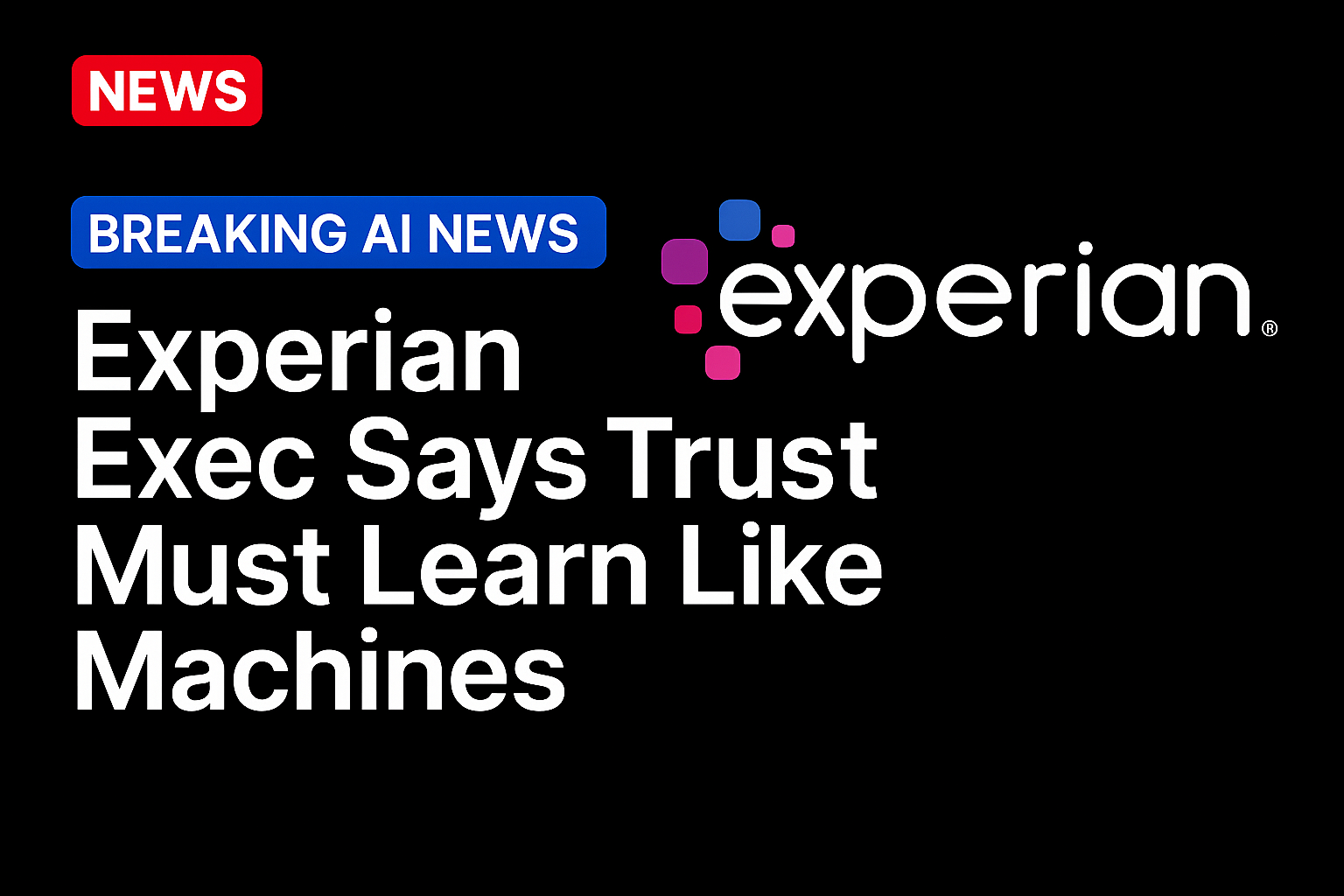The question confronting global enterprises today is no longer whether AI can make transactions faster or smarter, but whether it can make them trustworthy.
“AI is starting to redefine the speed, scale and intelligence of how businesses interact and transact,” Vijay Mehta, EVP/GM of Global Solutions and Analytics at Experian, told PYMNTS during a discussion for the B2B Payments 2025 event hosted by PYMNTS CEO Karen Webster.
“In the payment space, we’re seeing AI move from back-office automation to frontline decisioning where agents can negotiate, validate and execute,” Mehta added.
As Webster framed it, “AI plays on both sides of creating trust and destroying trust.” The task for industry leaders, she suggested, is to stay firmly on the side of creation.
That shift may ultimately demand a new conception of identity, one built not on static credentials but on dynamic, data-driven trust.
From Static Identity to Adaptive Trust
In the consumer world, identity verification has always been about the individual. In B2B, however, the landscape is far more complex. A “business” can mean a network of people, CFOs, treasurers, AP clerks, and now AI-driven agents, all initiating or authorizing payments on behalf of an organization. Each interaction adds a new variable to the equation of trust.
“Identity isn’t static anymore,” Mehta noted, stressing the importance of combining traditional identity verification (IDV) with behavioral analytics and device intelligence. “It’s a network of roles, permissions, and now digital proxies with agentic AI. At Experian, we approach trust as dynamic. It’s earned, verified and continuously reassessed.”
“Whether it’s a CFO approving a payment or an agent reconciling invoices,” he added, “every action leaves some sort of footprint or breadcrumb that we can monitor. That’s really where data-driven trust begins.”
This behavioral layer is the cornerstone of adaptive trust, or a system that learns and evolves in real time. By continuously analyzing user patterns and device interactions, businesses can identify anomalies before they escalate into losses. As agent-to-agent transactions reshape the role of AI in payments by scaling autonomous systems capable of negotiating, validating and executing deals on behalf of businesses, adaptive trust is likely to only become more important.
In the past, a “man in the middle” attack targeted humans. Now, the threat is synthetic identities and social engineering at scale, with malicious code or cloned agents impersonating legitimate businesses. Fraudsters are no longer just breaching systems — they’re manipulating the digital actors within them.
“AI can automate decisions and remove some of the human error that social engineering exploits. But if an attacker can manipulate an agent’s prompts or training data, the risk shifts rather than disappears,” explained Mehta. “In B2B, this could look like invoice redirection or compromised vendor accounts. Fraudsters are blending both real and fake business attributes to appear more legitimate.”
Real-Time Monitoring Becomes Nonnegotiable
In the analog world, fraud discovery often happened months after the fact, during reconciliations. In a digital ecosystem operating at machine speed, that delay is unacceptable.
As Webster observed, “The intelligence necessary to bring on a new business partner and extend credit to those business partners is not something you can shirk responsibility around.”
Still, one of the most delicate challenges in B2B payments is balancing fraud controls with growth. Set the defenses too tight, and legitimate businesses get caught in the net. Loosen them too much, and the doors open to fraudsters.
Experian’s own solution is to take a multi-layered approach. Within its Ascend ecosystem, businesses can design workflows that integrate traditional rules-based systems with advanced tools like behavioral intelligence and partner analytics.
“You can create a set of strategies that use all sorts of different capabilities,” Mehta explained, “from traditional verification to continuous monitoring, ensuring that you’re approving the right transactions and credits while stopping bad actors.”
“Tomorrow’s payment space might be very different,” he added. “The speed at which the machines are going to be operating means trust has to keep up with them.”
The goal is precision. Not just blocking fraud, but enabling legitimate commerce to flow unimpeded.
“Trust is the currency of digital commerce,” Mehta said. “In a world where AI agents transact on our behalf, trust has to be earned — and it’s continuous. It can’t be assumed one time.”
Source: https://www.pymnts.com/

